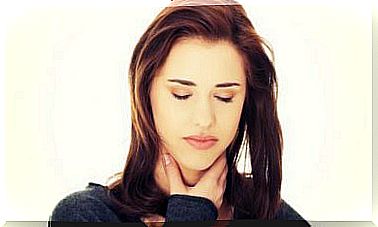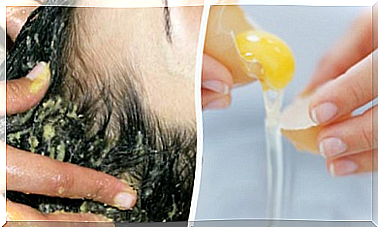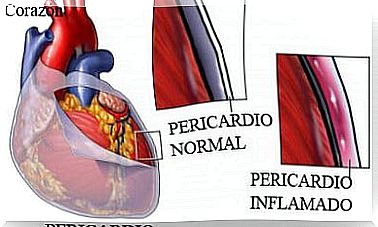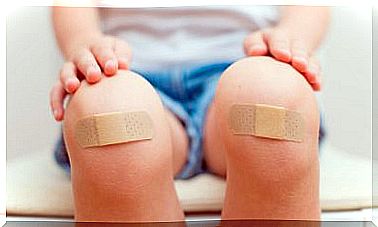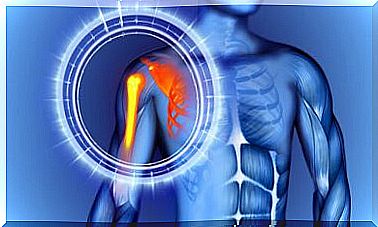Mouth Breathing: Causes And Consequences
Mouth breathing can have negative consequences, some of which can be considerable. A person who breathes through the mouth should see a doctor as soon as possible.
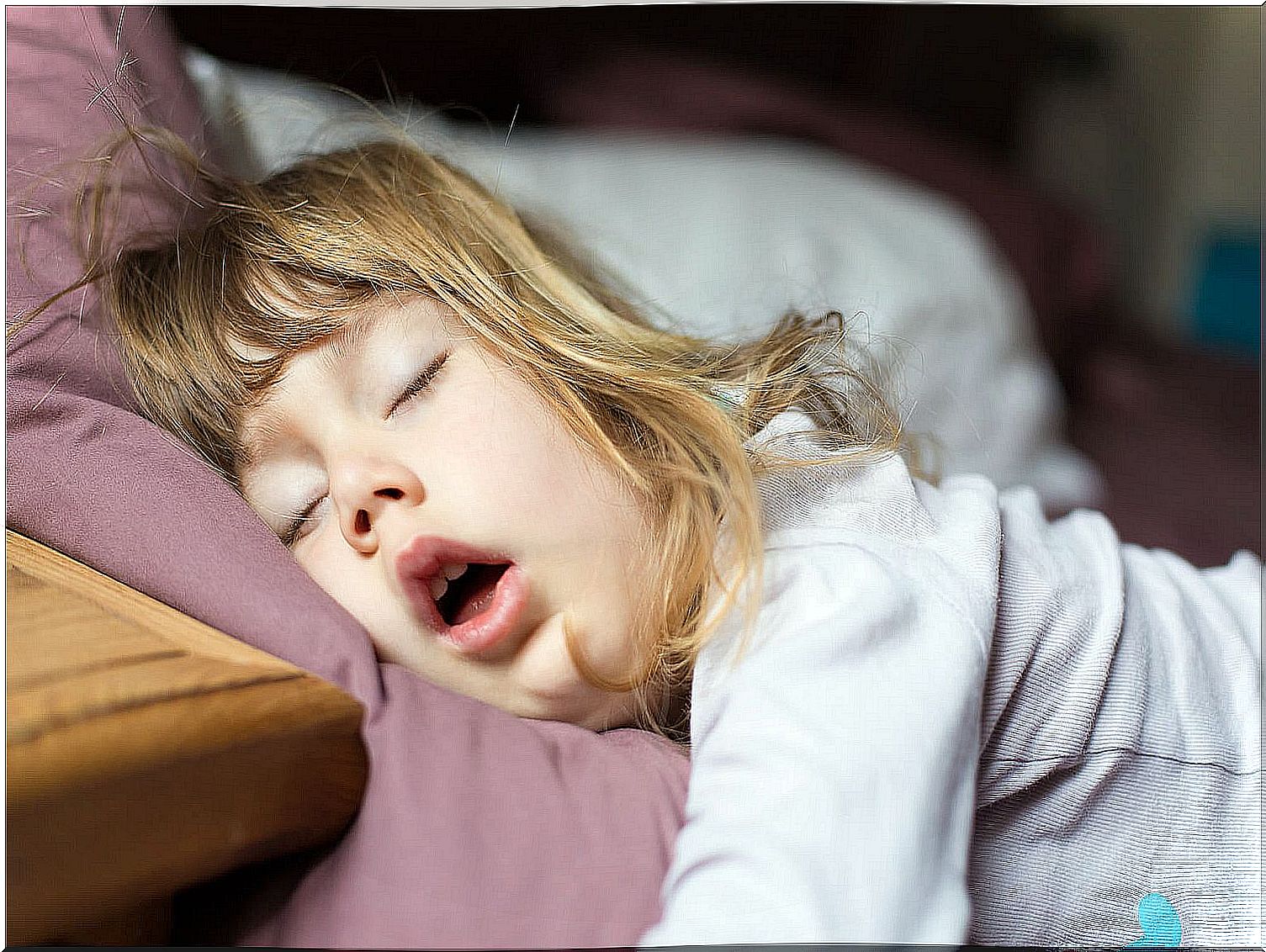
Mouth breathing is abnormal, since it is natural and normal to breathe through the nose. Unless there is some pathology, every person at birth has nasal breathing. This causes the nasal passages to heat up and moisten the air entering the body when you breathe in and out.
There is only mouth breathing when there is some obstruction in the airway. Whereas in nasal breathing there is a normal flow of air and does not imply efforts, the one carried out through the mouth is interrupted and carried out with some difficulty.
Mouth breathing can occur temporarily or continuously. If you breathe through the mouth, in the medium or long term there may be important health consequences, which include alterations in facial structures.
What is the natural entry of air in humans?

Air enters naturally through the nose. Nasal breathing humidifies, warms, and purifies the inhaled air. For this reason, it is considered the body’s first natural defense barrier against germs or impurities in the air environment.
No matter what the weather is like, the air that is inhaled always reaches the interior of the body at the same temperature. It also arrives purified and 100% moistened. This is possible thanks to the work of the nostrils.
Added to this is the fact that the nose concentrates the highest amount of nitric oxide, a substance that contributes to the regulation of blood flow, immunity, neurotransmission and platelet function. When inhaled through the nose, it reaches the entire respiratory system and improves the lungs’ ability to absorb oxygen.
When is it okay to breathe through your mouth?
Some actions require a combined breath; that is, mouth and nose breathing at the same time. When speaking or engaging in vigorous physical activity, you need to combine nose and mouth breathing.
When doing intense sports, nasal breathing should prevail anyway. However, it is possible that with increasing effort it may be necessary to do mouth breathing.
This is also necessary to achieve recovery: it is inhaled through the nose and exhaled through the mouth. In tired conditions, this helps oxygen get to the muscles faster.
Likewise, mouth breathing may be necessary when a person has a cold or nasal congestion due to an allergy. Either way, it is always necessary to favor nasal breathing over mouth breathing.
Disadvantages
Mouth breathing has several negative effects. In the first instance, it can lead to an overly dry mouth . Saliva plays a very important role as it washes bacteria from the mouth continuously. If it is reduced, it facilitates the proliferation of germs and can cause problems such as cavities.
Another effect of mouth breathing is difficulty sleeping. If not enough oxygen is received, a person may wake up at night. In adults this could cause sleep apnea and in adults, as well as in children, cause exhaustion and concentration difficulties.
In children, mouth breathing is a risk factor for developing permanent skeletal deformities. This type of breathing promotes the growth of the upper jaw, but not the lower jaw. The result is a highly visible overbite.
Clinical causes of mouth breathing
Mouth breathing is most often due to obstruction of a nasal airway. In other words, the nose is stuffy and this does not allow the air to circulate normally. The reasons for this may be the following:
- Nasal congestion. Caused by a cold or an allergy.
- Enlarged adenoids.
- Enlarged tonsils.
- Deviated septum.
- Nasal polyps.
- Enlarged turbinates.
- Nose shape.
- Shape and size of the jaw.
- Damage from chemotherapy or radiation.
- In rare cases, tumors in the area.
It is also the case of people who acquire the habit of breathing through the mouth. This occurs in the cases of people with sleep apnea, who tend to sleep with their mouths open to compensate for their need for oxygen. Also, stress favors mouth breathing.
Some older people can develop a condition called xerostomia from ingesting some medications. This makes the mouth feel very dry and burning, and promotes mouth breathing.
Possible consequences
The most common effect of mouth breathing is dry mouth and, derived from it, dental problems such as cavities and gingivitis, halitosis or bad breath and, sometimes, throat and ear infections. It also favors sleep apnea, with all the consequences that this implies.
Some effects can be more serious. Mouth breathing lowers the oxygen concentration in the blood, a risk factor for developing high blood pressure and heart failure. It can also reduce lung function and increase symptoms in people with asthma.
As mentioned before, mouth breathing in children can cause facial deformation. It results in long, narrow faces, narrow mouths, overbite, crowded teeth, abnormal swallowing, and poor posture.
It is also possible that it leads to sleep disorders and, consequently, difficulty concentrating and poor academic performance. Altogether, this could affect the normal development of a little one.
How is mouth breathing treated?
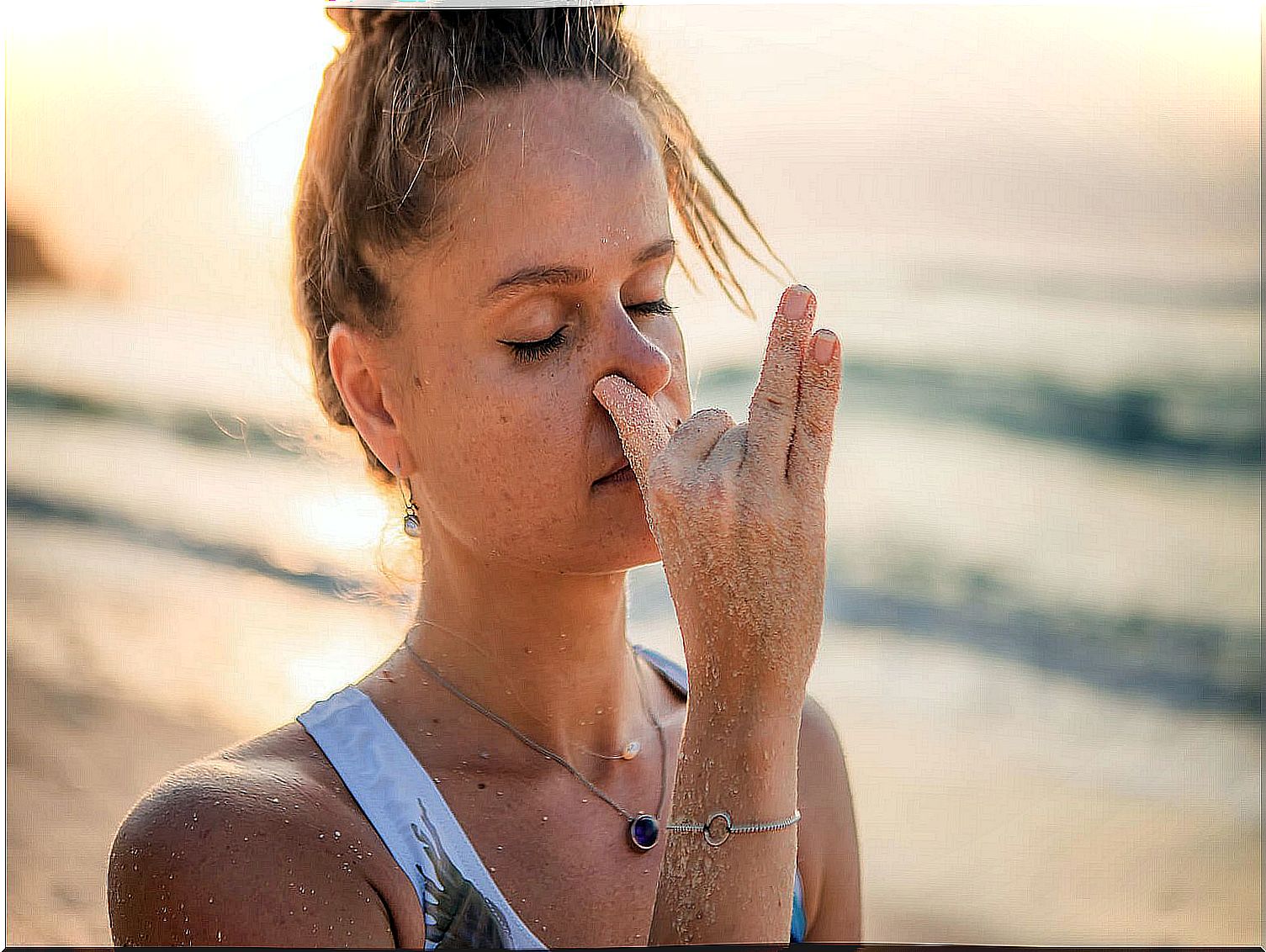
The treatment of mouth breathing depends on the cause that originates it. If there is a nasal obstruction, drugs such as decongestants, antihistamines, or nasal corticosteroid sprays will most likely be prescribed.
There are adhesive strips that are placed on the bridge of the nose and are effective in helping a person to have adequate nasal breathing. In the case of obstructive sleep apnea, your doctor may order the use of a device called CPAP.
If there are swollen adenoids or tonsils in children, removal surgery may fix the problem. Some braces and orthodontics may also help open the sinuses and nasal passages or widen the palate, thereby facilitating nasal breathing.
On the other hand, normal breathing can also develop through physiotherapy exercises. What is achieved is retraining the muscles of the tongue and mouth to achieve breathing through the nose.
Prevention and recommendations
If mouth breathing is due to nasal congestion, it is best to treat it promptly to avoid the problem. There are drugs and home remedies that allow you to decongest the nose before there are consequences.
It is advisable to sleep with your head elevated and keep the house clean and free of allergens. Air purifiers and filters can go a long way toward that end. Also, practicing nasal breathing exercises is something that helps to overcome the problem.
Using a humidifier during sleep helps relieve dry mouth. Relaxation techniques are an excellent way to learn to breathe properly and also help reduce stress.
Consult a doctor in case of mouth breathing
As we have seen, untreated mouth breathing can have many negative consequences, especially in children. Therefore, it is very important to detect and treat it early.
If a person shows that they usually breathe through the mouth, it is best to consult a doctor. It is the health professional who must indicate the measures that must be applied to solve each specific case.

